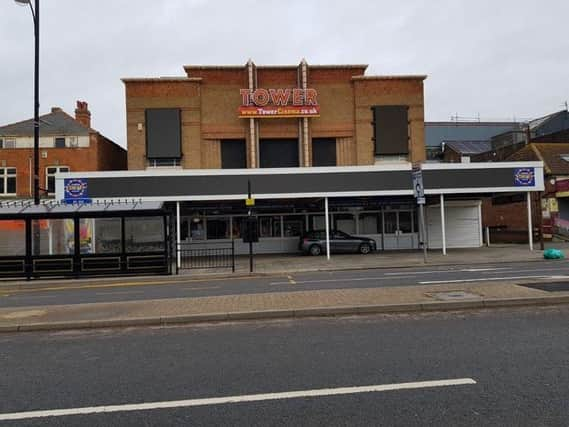Historic cinema in Skegness awarded £36k recovery fund


The Tower Cinema is one of 33 cinemas across England to benefit from £5 million awarded by the BFI in the first round from the Culture Recovery Fund for Independent Cinemas. The awards were announced by Culture Secretary Oliver Dowden.
Located in Lumley Road, the Tower Cinema was built and opened by local exhibitor Fred Clements, on March 27, 1922
Advertisement
Hide AdAdvertisement
Hide AdIt had a total seating capacity of 1,200; 750 in the stalls and 450 in the circle.
In the 1931 edition of Kinematograph Year Book it was listed as the only cinema in town to be equipped for sound.
Before the Covid-19 lockdowns there were two notable periods of closure. In January 1937 it was closed for three months for internal alterations.. Then on January 18 1941 it was hit by a German bomb during a matinee performance.
Luckily, no-one was hurt. but the roof was damaged, putting it out of action until repairs were begun in late-1949.
Advertisement
Hide AdAdvertisement
Hide AdA stage and eight dressing rooms were added to enable live shows to be performed in the cinema, in addition to film performances.
The Tower Cinema was re-opened on July 6, 1951, with Bette Davis in "Payment on Demand" and John Payne in "El Paso".
In the Summer of 1984, the balcony was converted into a 420 seat cinema and the stalls area was converted into an amusement arcade.
Further development took place in January 2003, when the former balcony cinema was twinned, each screen seating 142.
Advertisement
Hide AdAdvertisement
Hide AdIn 2004 these were slightly enlarged and the seating is now for 160 and 152.
As the Covid-19 pandemic left the cinema in uncertainly, owners Teen Spirit opened a successful drive-in cinema at the former Kwiksave site on Old Wainfleet Road in June last year.
The cinema in Lumley Road was able to re-open when restrictions eased but was forced to close its doors once again in November.
Culture Secretary Oliver Dowden said: “From restoring Georgian lidos and Roman baths to saving local screens and synagogues, our Culture Recovery Fund is helping to save the places people can’t wait to get back to, when it is safe to do so.
Advertisement
Hide AdAdvertisement
Hide Ad“All over the country, this funding is protecting the venues that have shaped our history and make us proud of our communities, whilst safeguarding the livelihoods of the people that work in them.”
Ros Kerslake, Chief Executive, National Lottery Heritage Fund, said: “These are all ongoing major refurbishment and restoration projects, funded by us, which have been threatened by the pandemic.
"From the oldest surviving outdoor swimming baths to a Victorian pier, and from a much-loved park to an historic abbey, these are all places that will enrich hundreds of lives when they reopen. We are delighted this extra funding from the Culture Recovery Fund will ensure that these exciting projects will go ahead.”
In addition, the BFI has awarded £5 million in grants to 33 cinemas, including two major independent companies operating cinemas across England. These grants to cinemas mean that 207 independent cinemas have been supported by the Culture Recovery Fund, 83% of which are outside London.
Advertisement
Hide AdAdvertisement
Hide AdBen Roberts, Chief Executive, BFI said: “Across the country, local independent cinemas are lifelines for communities and often the only form of culture and entertainment. As well as bringing people together to enjoy the magic of the big screen, local cinemas are hubs for educational and film activities and provide thousands of jobs. The pandemic has made clear just how important local communities are and the support of the Culture Recovery Fund means that many cinemas will be able to reopen and play a vital role in local economies and regeneration.”